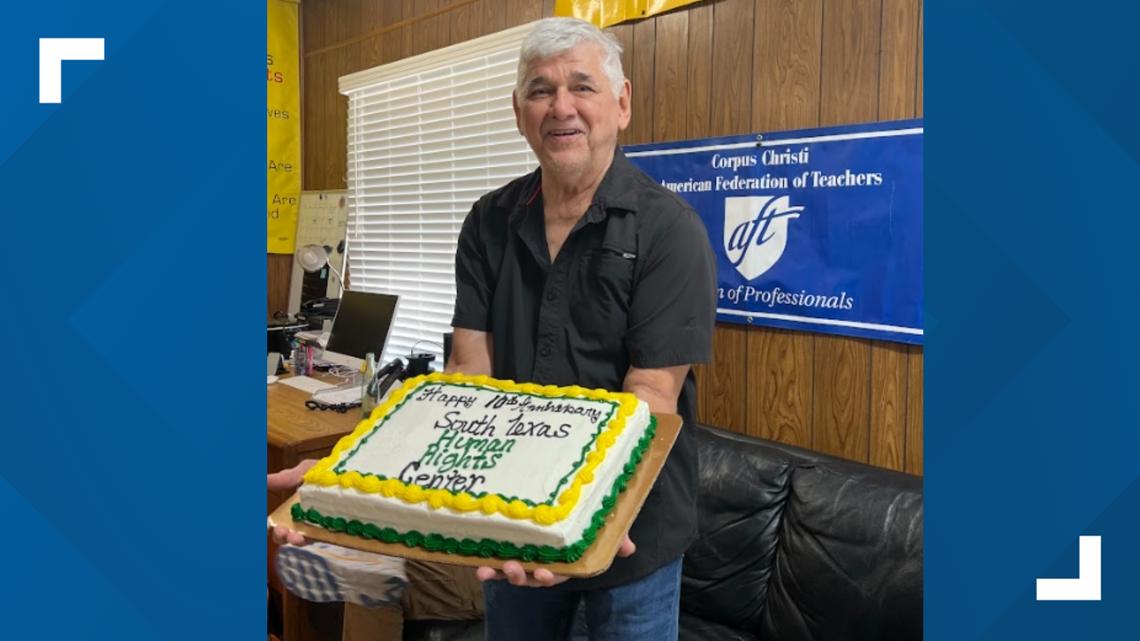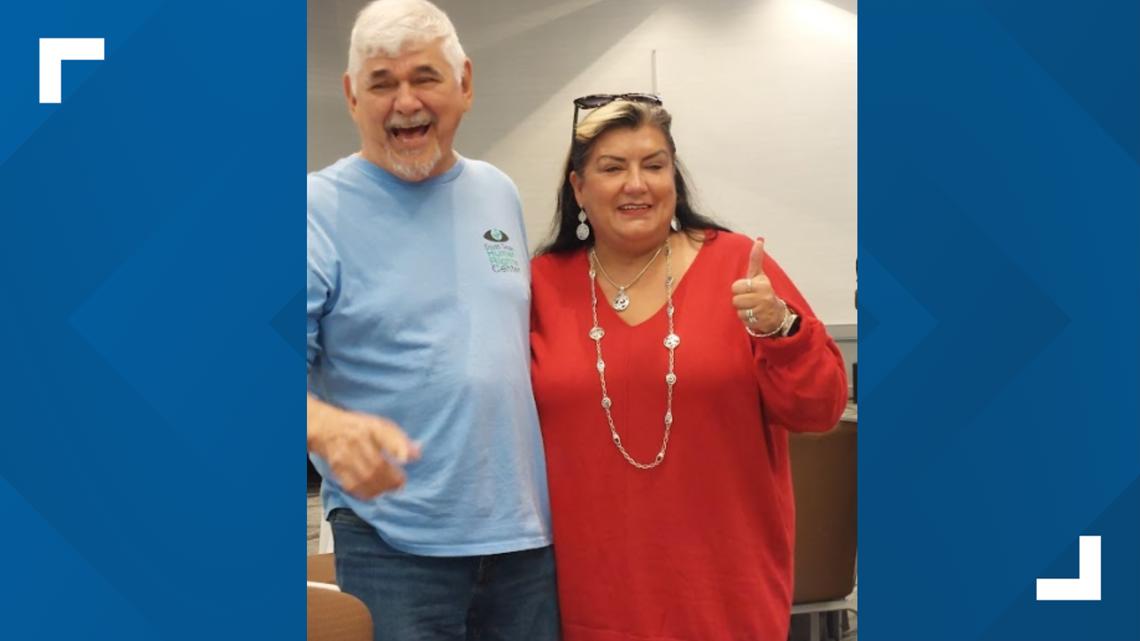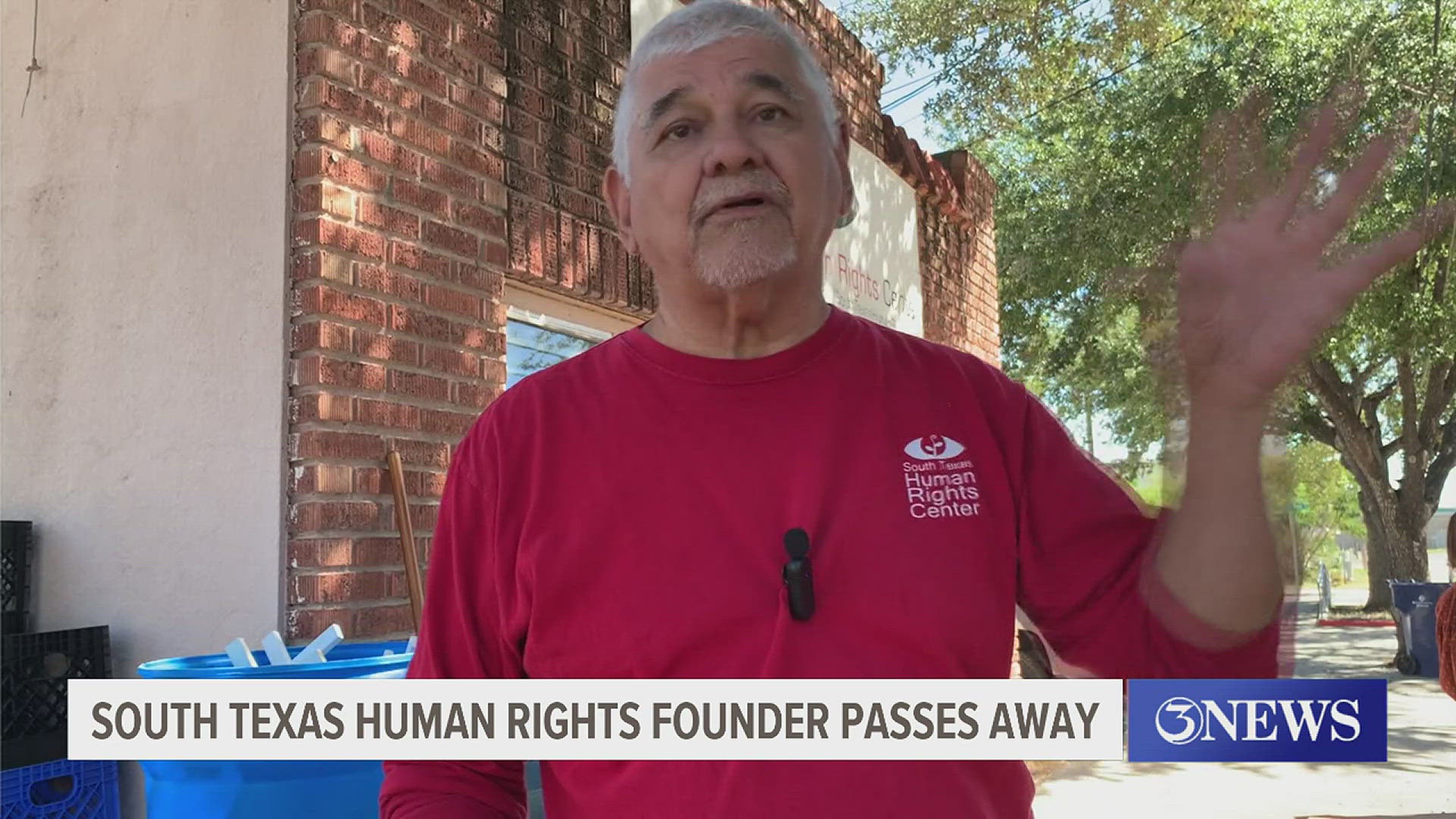CORPUS CHRISTI, Texas — Memorial services for Eddie Canales will take place on Saturday, August 10 in Corpus Christi, according to the National Network for Immigrant and Refugee Rights.
A time and location for the services have not been released. In the meantime, the NNIRR is asking the community to consider donating to Eddie’s GoFundMe campaign to help his family cover unexpected expenses.
The man credited with ensuring undocumented migrant remains were identified and treated with dignity as border crossings increased in the late 2000s and into the 2010s died Wednesday.
Eduardo "Eddie" Canales was diagnosed with cancer and deteriorated quickly, said friend and colleague Dr. Nancy Vera.
He was 76.
The South Texas Human Rights Center founder played a pivotal role in how migrant remains are now handled, she said.
"He's changed the face of forensics in Texas and the nation because now we're able to recover the bodies with Kate Spradley from (Texas State University's Forensic Anthropology Center) and identify the remains that are found on the ranches of people who have died," said Vera, who serves as the vice president of the center's board of directors.
His efforts weren't limited to helping the dead, though.
She said the center's location in Falfurrias also made it possible for him to locate people attempting to cross who were reported missing by family members.
"Because of the calls that we receive at the office, we're able to find the person and save those people's lives," she said. "Because of his work and his vision, he's saved hundreds of lives."


Meeting 'Eddie'
Vera said she met Canales on a trip to McAllen to see the then-national American Federation of Teachers president speak. They were both invited in the early 2010s by then-Corpus Christi AFT president Ray McMurrey; Vera was a teacher, but Canales had other interests.
"He wanted to talk to our national president, Randy Weingarten, about what was happening with the immigrants crossing the border at that time," Vera said. "He wanted to bend his ear."
It was on the drive back to Corpus Christi that Vera said she realized how passionate he was about the migrant deaths that were rampant in Brooks County at the time.
"On the way back, I had to sit in the front seat with him and I said, 'Man, this man talks a lot,' " she said, laughing as she recalled meeting the man she calls her "brother." "On the way back, he was talking about how people were dying out in the thicket."
He told her how the lengths the people would go to for a new life in the United States saddened him, and his plan for his organization to help them.
"I said, 'Yeah, yeah, yeah,' " she said.
But it was after she said she went on a radio show that she realized how serious he was.
She said that during her appearance, she called the 100-200 migrant remains found in trash bags and thrown in mass graves in Brooks County an "atrocity."
"He called me and he was mad and he says 'I'm gonna call you loose lips,' " she said. "We started arguing. And then he asked me if I wanted to be on the board of the South Texas Rights Center, and he told me about his vision, and I said 'absolutely.' "


His life's work
Canales dedicated his life to advocacy for kindness to people, Vera said, but specifically to undocumented immigrants.
He made presentations fighting for rights in such hallowed halls as the Geneva Convention and the United Nations, she said, and his impact did not go unnoticed.
"I can't tell you the numerous phone calls I've received in regards to his death, and the sadness that has been expressed because of his death," she said. "And his illness. Many people from across the country and across the nation came to visit him."
His primary goal: To allow people from other countries to work in the United States via a registration process.
"He was pushing for that kind of legislation," Vera said.
And because of how devoted he was to helping migrants, a transition plan already was in place so that the center would live on in Canales' absence, Vera said.
"He saw the suffering," she said. "He was a very humble and caring man. Compassionate and passionate. But mostly he cared about people who were dying and who were suffering, and he leaves that legacy."
The Corpus Christi native also was involved in the fight against desalination, he was a local environmentalist and a strong union member, she said.
"He was genuine," she said. "He was a humanitarian, and he did this kind of work his entire life. He didn't care much for money or worldly possessions. He just cared about other human beings."

